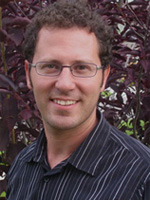Faculty team uses grant to develop groundbreaking course
College of Liberal Arts and Sciences (CLAS) faculty in the Department of Geography and Environmental Sciences (GES) at the University of Colorado Denver are developing new “synthetic” approaches to train students in the interdisciplinary sciences. Synthesis provides a mechanism to link diverse ideas, data, and disciplinary approaches, and facilitates development and use of integrative analytic and computational tools.
With support from a CLAS 2011 Advancing Curricula and Teaching (ACT) grant, faculty members Anne Chin, Casey Allen, Jon Barbour, Gregory Simon and Bryan Wee have developed a new course to help students learn to integrate different data, methods, and ideas. The course is grounded in concepts of systems theory and includes exercises for applying “synthetic thinking” to real-world situations. It introduces students to analytic tools that are able to link disparate data and concepts, and concludes with a service-learning project in which students apply their newly learned synthetic skills to real-world problems. This service-learning project uses the Five Fridges Farm, a research station of the University of Colorado managed by GES.
Gregory Simon presented the group’s findings as an invited speaker at the recent inaugural education workshop of the Socio-Environmental Synthesis Center, a national synthesis center in Maryland supported by the National Science Foundation. The group’s manuscript, under review in the Journal of College Science Teaching, also will form the basis for a set of special organized sessions at the Spring 2013 meeting of the Association of American Geographers.


